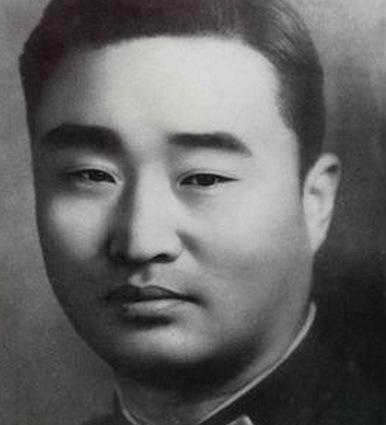History is the memory of things that have been said and done. —Carl Baker
On September 18, 1931, the September 18 Incident broke out, and the Chinese began a 14-year long war of resistance. In 1944, in order to open up the Chinese mainland communication line, the Japanese army mobilized 200,000 Japanese troops to launch a fierce attack on Changsha, and 24 days later, Changsha fell, and the Japanese army directly drove straight into Hengyang to attack Hengyang, and the Tenth Army of the Nationalist Army, under the leadership of Fang Xianjue, attacked and defended Hengyang.

Fang Xianjue, born in Xiao County in 1903, studied at Xuzhou Middle School in Jiangsu Province, aspired to become a lawyer, and gradually developed revolutionary ideas during his college years, and later after hearing the news of the enrollment of the Whampoa Military Academy, he gave up his pen and congrong. After graduating from the Whampoa Military Academy, Fang Xianjue successively participated in the Battle of Taierzhuang and the Battle of Nanchang, and accumulated rich combat experience.
In 1944, Fang Xianjue received a phone call asking him to hold Hengyang unconditionally for 7 days, because at that time, the war was repeated by Fang Xianjue as holding on to 47 days, a word difference, a world of difference! In those days, any order was given after careful consideration, and although he doubted the correctness of the order, the soldier made it his duty to obey the order, and he chose to carry out the order.
Previously, he was ordered to lead the Tenth Army to support Changde, and now he was holding Hengyang with the exhausted Tenth Army, fighting against the Japanese army with less than 20,000 troops, which were 6 times larger than himself, but even though he knew the gap between the enemy and us, he still led the Tenth Army to make arrangements, survey the terrain, and deploy to defend the enemy.
Soon the Japanese army launched the first attack, this attack lasted for five days, ended with heavy losses and retreat of the enemy army, and the second attack, the enemy dropped a large number of shells and poison gas bombs from over Hengyang, the attack was menacing, the offensive was fierce, but our army did not give in, stubbornly resisted, and repelled the Japanese army with great casualties. In the third attack, the enemy army was ashamed and angry, and quickly reinforced its troops and armaments, preparing to attack Hengyang with its superiority in strength.
However, Fang Xianjue took advantage of the geographical advantages and constantly maneuvered with the Japanese army, and after more than 40 days and nights of fierce fighting, our army suffered countless casualties, but the "reinforcements" have not appeared for a long time, and the soldiers in the city are depressed and even desperate. At the time when the mountains and rivers were exhausted, Fang Xianjue sent a final telegram to Chongqing: "Our officers and men have suffered complete casualties, and there are no soldiers to block the attack at the moment, and the rank vows to repay the party and the state with one death, and to fulfill the duty of the soldiers, and to never live up to the expectations of junzao's lifelong education." This electricity is probably the last electricity, see you in the next life! The words of this telegram were resolute, reflecting that Fang Xianjue was ready to die on the battlefield.
With the enemy's onslaught again and again, the situation became more and more difficult, Fang Xianjue felt powerless to return to heaven, remembering those thousands of wounded soldiers, after sitting alone for a night, Fang Xianjue made a major decision - to contact the enemy army to discuss an armistice, this decision is undoubtedly the most humiliating decision for the other side, but in order to save the military and the people, so that the people in the city will not die innocently and tragically, he chose to surrender, but put forward three demands: First, retain the 10th Army structure; second, the Japanese army must not kill a single person when entering the city; third, Wounded soldiers need to be treated humanely.
On August 8 of the same year, the Japanese accepted Fang Xianjue's surrender, but refused his request, holding out for 47 days at the fall of Hengyang. This was an extremely important battle in the history of China's War of Resistance Against Japan; our army successfully smashed the Japanese army's plan to take Hengyang City in three days with the weak and strong, and with the enemy outnumbered, the process of the Japanese army's plan to open up China's transportation route was stalled, and precious time was given to the rear to meet the war, and the Hengyang defense war was also known as the "Moscow Defense War in the East."
Fang Xianjue led the Hengyang defenders to fight bloody battles, stubbornly resisted, and fought against the Japanese army with a sick division that was 6 times the strength of his own, and at the cost of 16,000 casualties, severely damaged nearly 20,000 Japanese troops, creating the longest offensive and defensive battle between the Chinese army and the Japanese army! It struck a blow at the arrogance of the Japanese army and greatly boosted the morale of the Chinese army, and it can be said that although Fang Xianjue was defeated, he was honored!